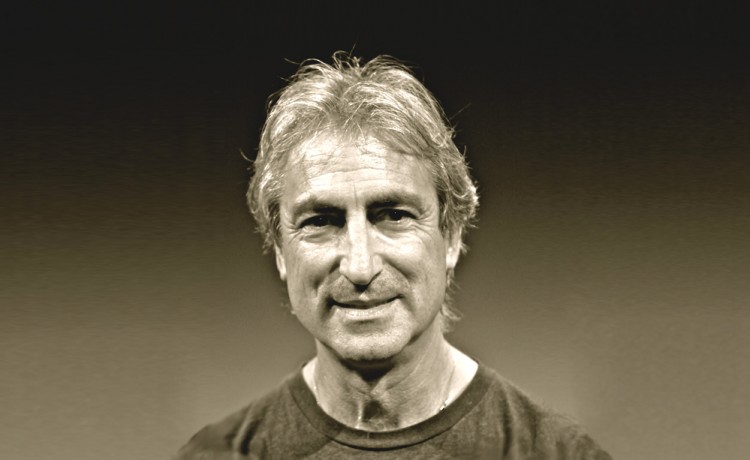
An Interview with Richard Rosen
By Joyce Englander Levy, August, 2015
What brings you to Yoga Shanti?
Well, you invited me. I enjoy coming to Yoga Shanti. It’s a beautiful place. I find the students very receptive, which makes teaching much easier. I’m already looking forward to my upcoming trip.
This year you’re going to be teaching an introduction to pranayama. What is the relationship between asana and pranayama?
Well, of course, this is modern yoga that we’re doing, but in the traditional practice, asana was always a preparation for pranayama. Pranayama was, for a very long time, an essential practice of hatha yoga. Not that asana was unimportant, but it was a preparation—it wasn’t an end in itself like it is today. Asana is a means of opening the body, and strengthening the body, for sitting and breathing. It is a very important prelude, but the real practice was, at one time, pranayama.
What is pranayama and why would someone want to start a pranayama practice?
Well, do your students breathe? (That’s a joke.) People nowadays are very concerned about their diet, and what they drink. People can go without food and liquid for a pretty long time. But you can’t go without breath for more than a few minutes—maybe 5 or 6 minutes, tops. It’s ironic then that people watch their food and their diet intake, but they don’t really watch their breath very often. The breath is really what keeps you alive from moment to moment.
I think what’s important about beginning a pranayama practice is to become aware of your own breathing. It’s important for people in general—but for a yoga practitioner in particular—to be conscious of their breathing, and to use it as a means of focusing or centering the self in the present moment. That’s how I would start the conversation about why pranayama is important.
Can you speak more to some of the benefits of pranayama?
It makes breathing more efficient. The average person’s breathing is labored in various ways because of tension or misalignment, so they use a lot of the energy they generate from breathing just on breathing, and they don’t have a lot of energy left over for much else. So with a breathing practice (which, of course, involves asana), you become more efficient as a breather, and therefore you generate more energy with less effort, and have more energy left over for other pursuits. Breathing becomes easier and more efficient. Breath is life. Pranayama brings in more life.
So the question to ask myself when starting a practice is, “Is this practice helping me to breathe more efficiently so I have more energy for my life?”
Yes, more efficiently, with more awareness—which is a good thing, because it keeps you focused on the present (because you are always breathing in the present). Having a sense of being present wherever you are, and watching yourself in that present situation, is a great benefit. It’s worth it just to get that much out of it.
What are you working on in your practice?
Lying down and breathing. You know, my Parkinson’s has had a huge impact on my practice. I have to adjust my expectations to accommodate the loss of flexibility, strength,and balance. So I’m experimenting with different ways of using props, and compensating for the loss of my former abilities. I’m trying to find ways to create a reasonable way to practice. And not only that, but how to apply that to my teaching, and helping students.
What are your daily rituals or routines?
I get up early. I study something. For a long while I studied Sanskrit every morning. Now I’m working on a book. (And right now I’m studying Toki Pona, which is a language that has 120 words. I’m trying to keep my brain active.) This book is getting down towards the end—I’m nearing the deadline. So, yeah, writing, studying, and I have a house out here in sunny California, so I work in the garden everyday, and I teach, and I travel. My favorite place in the whole world to travel is Sag Harbor. I really look forward to hanging out with Rodney and Colleen.
How does yoga show up for you when you travel?
Well, you know, Shri Aurobindo says, “All life is yoga.” There is no separation. All movement is asana. All breathing is pranayama. All perception is meditation. It’s just seamless. There is no…. I can’t differentiate. I don’t believe in practice anymore. Practice to me sounds like you are doing something for the future. You want to get somewhere. I decided I don’t want to get somewhere anymore. My feeling is that we are already all there.
Just two more questions: one philosophical and one more fun.
Great. Let’s hear them.
The Ego. What is it?
Think of the ego as a little human being—a little person—who helps you out in your life, and who often becomes a little bit selfish about things, and wants to be the boss. You have to assure it that it can help you to live your life happily, without it having to be the boss everyday. I feel my ego pretty clearly these days as a gripping in different parts of my body—mostly in my throat—and I just breathe into it and reassure it all the time that everything is fine. We’ll get along OK together without having to push things away or get angry or frustrated. I’m getting too old to be negative—although I am a pretty negative person.
That’s funny—I feel too young to be negative or angry, although I often find myself feeling that way.
Well, wait till you get to be my age. My feeling now is that you’re supposed to feel emotions. The whole thing about yogis having to be levelheaded, and feel the same in all situations—I don’t really go along with that much anymore. I think you need to feel what you need to feel, and that you need to let it go.
I don’t believe in God or the soul or anything like that. I believe consciousness permeates the universe, and that each of us is an agent of that consciousness. Consciousness wants us to live fully, and to feel everything completely, because it’s looking to us to supply it with experience. The reason the universe is here is so it can answer the question, “Who am I?” So I don’t think it’s useful to be calm all the time. If I feel like I am going to be angry then I just get angry, and I get over it as quickly as I can.
So the ego. I’m aware of my ego a lot. I feel it. I acknowledge it. And then it’s done. I get over it. We want to be respected, loved. Reactions to that are from the ego. But we don’t need to hold onto it. Everyone needs to be who they are.
So what’s the funny question?
Oh, it’s not a funny question. I’m not funny—I’m very serious. (That’s Jenny’s job to come up with funny questions, and she’s on vacation.) My lighthearted question is simply, “Who is your favorite writer, or poet or musician?”
Oh, here we go. Writer: Jose Sarmago. Poet: Wislawa Szynborska. Musician: Dwight Yoakam.
Now, can we take this off the record so I can ask you for advice on running a yoga studio?
Ha! I don’t know if I have much of that. I look forward to seeing everyone in August.

